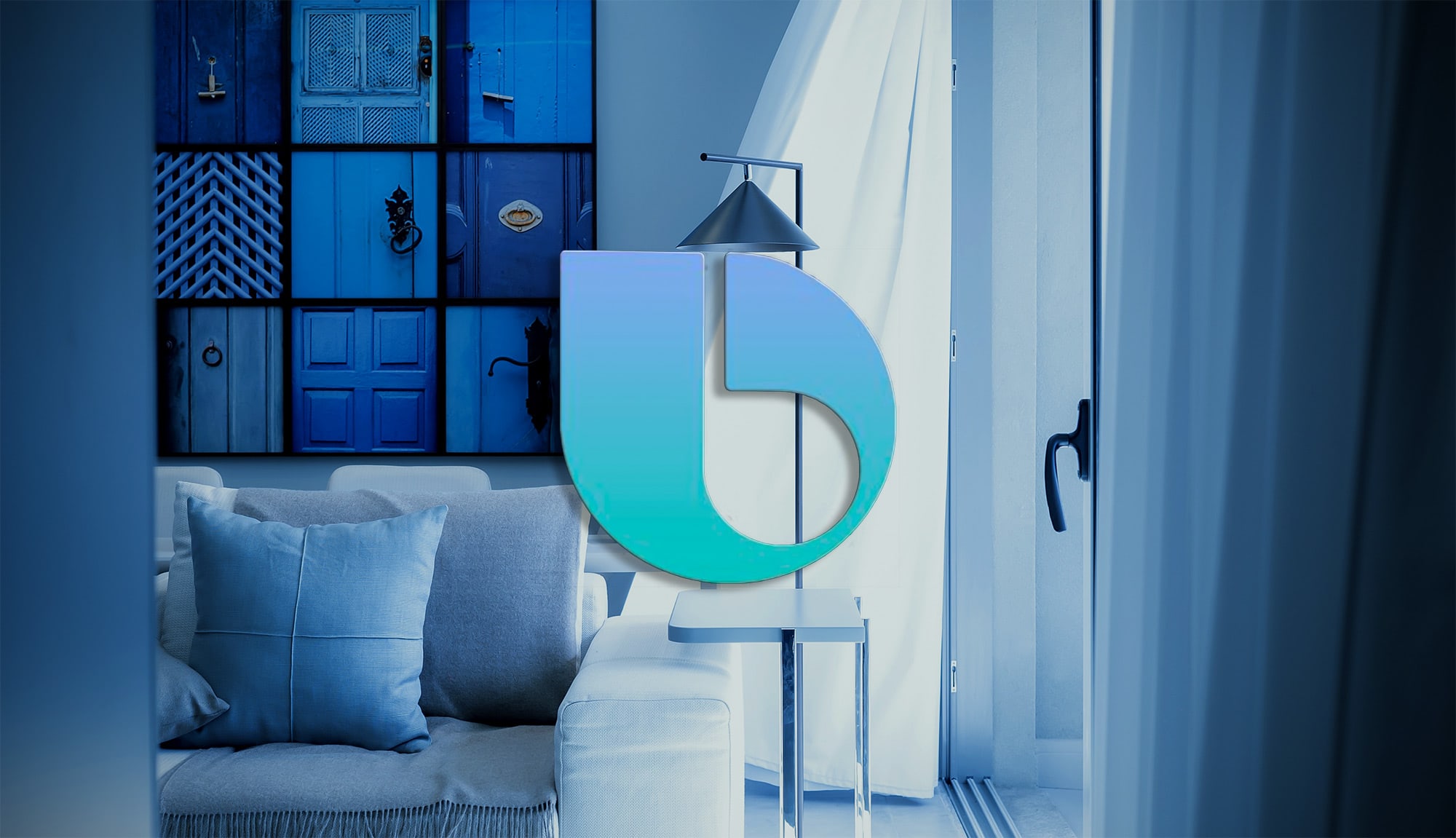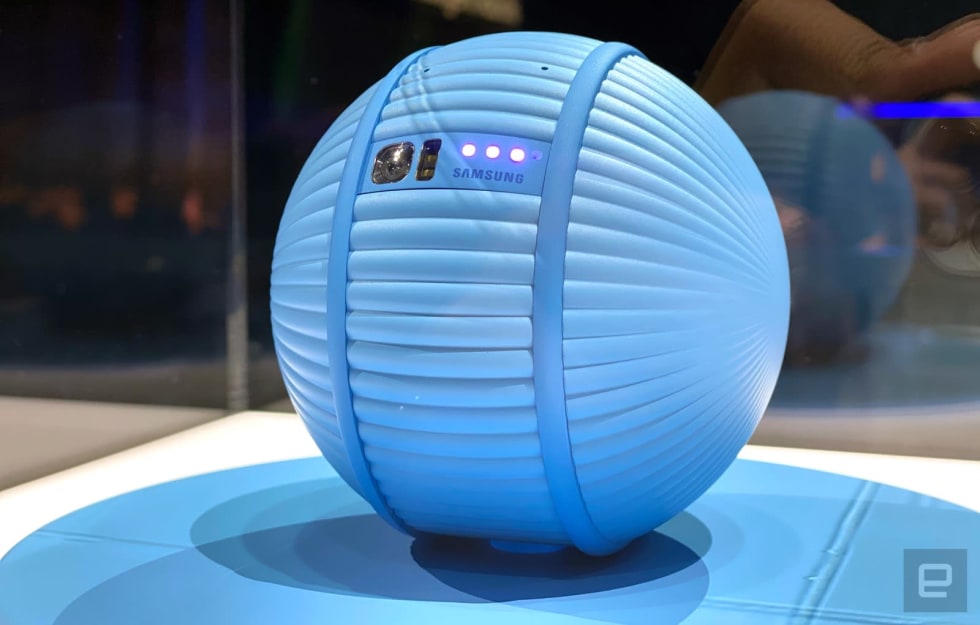
Decades of science fiction assured us all that, yes, one day we'd be able to control the immensely complex gadgetry around us with just our voices. It was right, mostly. The rise of the virtual assistant, built atop still other developments in cloud computing and machine learning, means we can wonder out loud what the weather is like, or how far away the moon is, or hail a car and expect a response from a carefully crafted voice in moments. And now, those disembodied voices have taken up residence in our homes.
As an Engadget reader, there's a solid chance you have one of Amazon's Echo devices sitting around, waiting for a command Alexa can respond to. If your tastes skew differently, your home might be run by Google's Assistant and any number of Google Home or Nest devices. Hell, you might have even embraced Siri -- it's not that bad -- in the form of a HomePod. And then there's Samsung's Bixby, and the disappointment that naturally comes with it.
Bixby has received more than its fair share of hate since it launched on the Galaxy S8 in 2014. Since then, we've seen Samsung seemingly downplay Bixby's value in a few curious ways: The company didn't so much as utter the name during its splashy August launch event, and the Galaxy Note 10 and 10 Plus announced that day no longer feature the maligned physical Bixby key. Stranger still, Samsung's Galaxy Home -- a Bixby-powered smart speaker first announced in summer 2018 -- missed every launch window the company dared speak aloud. And at this year's CES, when Samsung CEO H.S. Kim laid out the company's vision for a new Age of Experience, Bixby was only mentioned in passing -- and not once in Samsung's lengthy press release.
It's easy enough to infer that something has gone terribly wrong in Bixby-land, but now that 2020 is here, I think it's worth cutting the service a little slack. Yes, it's far from the assistant Samsung's biggest rivals have created. That doesn't mean it's a failure, though. It's just that Samsung is playing the smart home game in a way most of its competitors just can't.

Samsung
Every major name playing the virtual assistant/smart home game has adopted slightly different approaches and timetables. Amazon, a company that didn't have a stellar hardware reputation, built Alexa to be a household concierge at first. In those early days, it wasn't much more than an errand girl in a black plastic tube, answering questions and replenishing homes with products from Amazon warehouses. Siri and Google Assistant were mostly mobile assistants when they launched, though they would eventually branch out into home-specific hardware.
Over time, Alexa and Google Assistant have flourished -- they're in scads of devices, they're working in hotels, in cars and more. Most importantly, they quickly built deep pools of third-party integrations that meant they could inform and control far more aptly than they could on day one.

Samsung
Bixby, on the other hand, still largely remains locked into smartphones (which in fairness, Samsung does sell a lot of). The company's 2014 acquisition of SmartThings gave Bixby something of an early smart home edge when it eventually did launch, but one could make a credible argument that devices like smart speakers, ones that take up prolonged residence in people's homes, were big factors for Alexa's and Google Assistant's growth. Fair enough.
For what it's worth, I strongly suspect that Samsung's problems in getting the Galaxy Home out the door had much more to do with the weak demand than any real technical shortcomings. As Apple seemed to prove with the HomePod, there aren't that many people willing to invest in pricey, high-end smart speakers with a clear focus on audio quality, and Samsung was at a double-disadvantage because Bixby just wasn't that widely used. (Siri, for all its shortcomings, has been a mainstay of every iPhone since 2011.)
Here's the thing, though: When it comes to developing smart home competence, Samsung has a distinct advantage over Amazon and Google, even if it's one people often seem to forget about. Unlike the other guys, Samsung makes everything, from televisions to dishwashers to microwaves, laundry machines, wireless routers; a comprehensive list would be just massive. Point is, unlike Amazon and Google, whose access to home appliances and other smart home goodies is limited to whatever their makers' teams can provide, Samsung gets to control the scope and utility of these integrations with as much nuance as it wants. For lack of a better term, Samsung's role here has the potential to be quite... Apple-y.

Samsung even makes, uh, avant-garde refrigerators.
Samsung
Rivals like Amazon are only just starting to be able to compete with Samsung on this level. So far, the e-commerce giant has released just one Alexa-friendly appliance: a microwave that requires you to press a button before delivering a command to, say, reheat your coffee. It's a start, but by comparison, Samsung is already out there delivering refrigerators with cameras and ovens you can chat with. Things don't end there, either.
The company's leadership proclaimed back in 2018 that all of its appliances would be able to recognize and react to voice commands by the year 2020. To reach that lofty goal, Samsung had planned to develop a team of nearly 1,000 AI researchers by 2020. While it's not clear exactly how much progress the company has made on that front -- Samsung has not responded to requests for comment by time of publication -- this was a pretty significant shift in strategy that saw Samsung start looking at broad swathes of its products as a whole that could be improved by AI. Even if it takes a little longer for Samsung to ensure all of its home-centric hardware gets properly connected, the potential upsides just might be worth it. And once that big chunk of the ecosystem in place, Bixby's value could be that much harder to ignore.
As it turns out, Samsung's bid to control the home might extend well beyond just shiny new appliances. Even though the original Galaxy Home appears to be DOA, a smaller version of that smart speaker has been undergoing not-exactly-discreet testing in Korea, and this version supposedly has built-in IR blasters that allow it to control non-smart appliances like air conditioners and older televisions. If Bixby gains the ability to control not just new appliances but also stuff that's been in your home for ages, there's another reason to take a chance on Samsung's AI assistant.
It certainly doesn't hurt that the Bixby experience isn't nearly the mess it used to be. Samsung made a slew of improvements last year, like support for French, Spanish and German in addition its original three languages, and a Bixby Marketplace that provides access to new, third-party "capsules." For all we know, Bixby may also wind up being the AI assistant that gets baked into smart home gadgets like Ballie, an adorable robot prototype that was surprisingly well-received at CES 2020. (That said, Samsung Think Tank Team Director Leo Jun says Ballie is so new that no one is really sure what kind of voice interface it will use.)
Taken together, it's starting to seem clear that Samsung's virtual assistant might not deserve the bad rap it's gotten all these years. Samsung still has a lot of work ahead, and even after everything, Bixby may still wind up being the also-ran that Amazon and Google outclassed ages ago. I don't think it's that cut and dry, though. As long as Samsung insists on building hardware for every situation, it gets to continue cultivating a massive foundation screaming to connect through an interface like Bixby. Samsung gets to set its vision and potentially deliver on it in a way its biggest rivals simply can't yet, and we just might see the fruits of the company's long game once 2021 arrives.
by: via https://www.AiUpNow.com/
